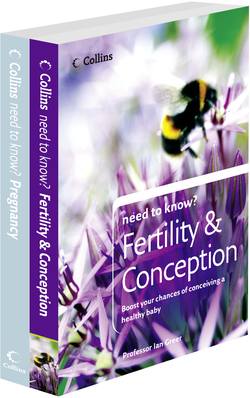Читать книгу Need to Know Fertility, Conception and Pregnancy - Harriet Sharkey - Страница 100
Exercise to avoid
ОглавлениеYou should avoid prolonged, high-intensity training and the general rule for exercise is to not overdo it when you are pregnant. If you are too breathless to hold a conversation when exercising, then you are probably doing too much.
• Check your heart rate and don’t exceed your target rate.
• Do not get overheated or dehydrated; in particular, do not exercise if you have a high temperature.
• Do not exercise for prolonged periods; do no more than 45 minutes at a time.
• Ensure that you always have a good fluid intake after vigorous exercise.
In terms of what exercises to do regularly, avoid sit-ups and straight leg raising while on your back. These can strain your abdominal muscles, which are already stretched by the growing pregnancy. The two large muscles that run longitudinally down the middle of your abdomen (known collectively as the rectus abdominus), normally separate in pregnancy to help accommodate the growing pregnancy. Exercises that stretch these muscles, such as sit-ups and straight leg raising, stresses them further, which slows down the speed at which they return to normal after the pregnancy.
In addition, when you get up from lying down, take care not to strain the abdominal muscles. Roll over on to your side, push yourself up with your arms, then get into a kneeling position and stand up, one leg at a time while keeping your back straight.
Another reason not to exercise while lying on your back in pregnancy is to avoid feeling faint. When you are pregnant and lie on your back, the weight of the pregnancy can obstruct the large blood vessels in your abdomen that are pumping the blood back to the heart. The heart therefore has less blood to pump out and so you can feel faint.
If you feel any strain during exercise, stop at once to prevent damage to your ligaments. Your ligaments are very strong fibrous bands of tissue that hold bones together, including those of the pelvis and they soften in pregnancy to allow more room in the pelvis to help ease the passage of the baby through the birth canal. However, this softening also makes them more likely to be strained if you stretch too far.
